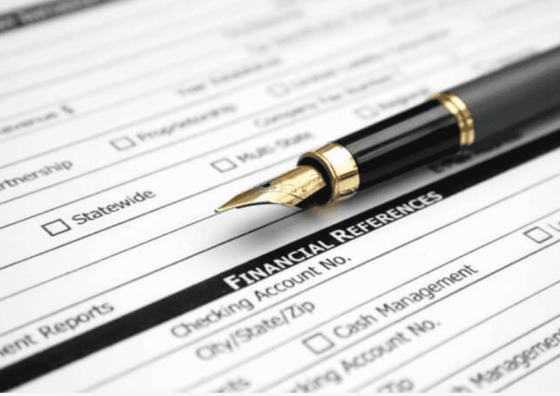As inflation continues to rise, it’s important to make sure your investments are in line with the current market. In this blog post, we’ll discuss what to invest in during inflation.
By following our tips, you can be sure that your portfolio will remain stable and profitable even when the cost of living rises.
Now, let’s get down to business.
5 Investments That’ll Save You From Inflation
Here are the five best investments to make during times of inflation:
1. Precious Metals
The best hedge against inflation is investing in precious metals. Silver, platinum, and gold have historically been used as a form of currency, and their value often increases during times of economic turmoil.
On top of that, if your portfolio is mostly made up of equities and bonds, investing in precious metals can help diversify it.
However, precious metal investments have one significant disadvantage — they don’t provide a return. Therefore, you should be strategic with your approach.
There are a few different ways to invest in precious metals. You can purchase the physical metal, invest in an ETF or mutual fund specializing in precious metals, or buy stocks of companies involved in the precious metals business.
2. Real Estate
If you want to know how to profit from inflation, hear us out — invest in real estate!
The majority of commercial real estate (CRE) assets are leased.
The following types of leases may be found in this category:
- Homes
- Apartment buildings
- Storage complexes
- Office buildings
- Shopping malls
- Industrial facilities
CRE investments can protect you against inflation because, as inflation rises, property values and monthly rents increase.
How to invest in real estate?
You can invest in real estate by purchasing a rental property (the median home price in the US amounts to $248,857), investing in a REIT (real estate investment trust), flipping investment properties, etc.
3. TIPS (Treasury Inflation-Protected Security)
When it comes to best investments during inflation, TIPS takes a high spot on our list.
Why?
First and foremost, TIPS are government bonds that mirror the growth and decline of inflation. Simply put, when inflation rises, the interest rate paid also goes up. When prices fall, interest rates decline.
Secondly, TIPS are backed by the US government, so there’s little risk involved in investing in them.
You can invest in TIPS through a mutual fund or an ETF specializing in them. You can also purchase individual bonds directly from the US Treasury.
4. Short-Term Bonds
Short-term bonds are an excellent hedge against inflation because they’re comparable to keeping your money in a CD or savings account. In other words, your funds are safe and readily accessible.
In addition to that, compared to long-term bonds, short-term bonds are more resilient in the face of rising prices.
Some of the best short-term investments include:
- Treasurys
- High-yield savings accounts
- Money market accounts
- Short-term corporate bond funds
- Short-term US government bond funds
- Money market mutual funds
- No-penalty certificates of deposit
5. Commodities
Commodities are some of the best investments for inflation because their prices often rise along with inflation. The most common commodities include oil, wheat, natural gas, and cattle.
Investors should be aware, though, that commodities also come with significant risks. Their price is determined primarily by demand and supply, which can fluctuate greatly. This makes them a risky investment.
How to invest in commodities?
You can invest in commodities by purchasing futures contracts, physical commodities, ETFs, or mutual funds.
3 Worst Investments During Inflation
Now that we’ve gone over some inflation-proof investments let’s also take a look at a few of the least recommendable.
Penny Stocks
If you aren’t familiar with penny stocks, they’re a type of stock that sells for less than $5.00 per share.
People buy them because they believe they’ll discover the next Tesla on a dime. What makes penny stocks problematic is that they’re highly illiquid and have no track records or histories. Consequently, they’re difficult to trade.
Cash
Is cash king during inflation? No, not in the least. While cash may seem like a safe investment, it’s actually one of the worst. That’s because cash doesn’t generate returns, and over time, it tends to lose its value.
For example, let’s say you have $100 in cash. If inflation is at a rate of 2%, then the purchasing power of your $100 will decline to $98. In other words, after a year, you’ll only be able to buy $98 worth of goods and services.
Little-Known Crypto
No, we’re not talking about Bitcoin here. We’re talking about cryptocurrencies you’ve probably never heard of before, such as Worldcoin and $MSHIBA.
Why are these cryptocurrencies bad inflation investments?
First of all, they have no real value. Secondly, they’re highly volatile, and lastly, they lack protection.
Here’s how they compare to, say, stock trading.
For example, when it comes to stock trading, insiders aren’t permitted to use their knowledge of a firm’s operations to profit from the stock market. There’s no such restriction in the crypto market.
Invest in What Matters
While inflation can be a scary thing, you don’t have to be afraid of it. By investing in the right direction, you can actually profit from it. Just remember to diversify your portfolio and to always consult with a financial advisor before making any big decisions.
FAQs
What stocks do well during inflation?
According to analysts, the following stocks may be considered excellent long-term investments in an inflationary environment:
- Berkshire Hathaway (BRK-B): a solid performer that flourishes in bad market conditions.
- Coca-Cola (KO): a company with strong pricing power and a vast number of loyal customers.
- Devon Energy (DVN): the oil company that receives high returns due to the high cost of gas.
What investments are best during inflation?
Certain investments do well during inflationary periods. They include precious metals (e.g., gold, silver, and platinum), real estate, inflation-indexed bonds (e.g., treasury inflation-protected securities), and commodities (oil, wheat, natural gas, and cattle).
By investing in these assets, you can protect your portfolio from inflation. On the other hand, cash and penny stocks tend to perform poorly during inflation.
Now that you know what to invest in during inflation (and what to avoid), it’s time to start investing! And don’t forget to talk to a financial professional before making any significant decisions.






